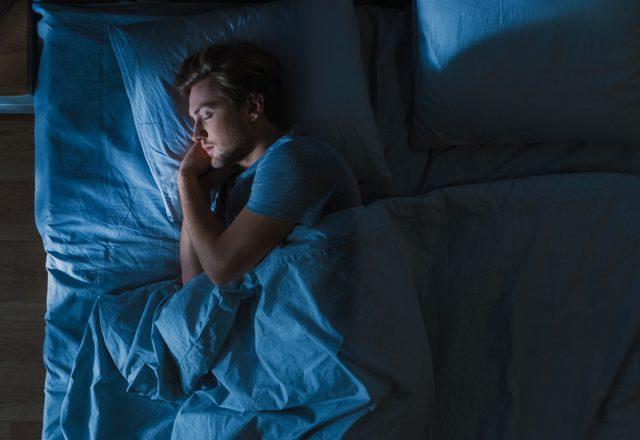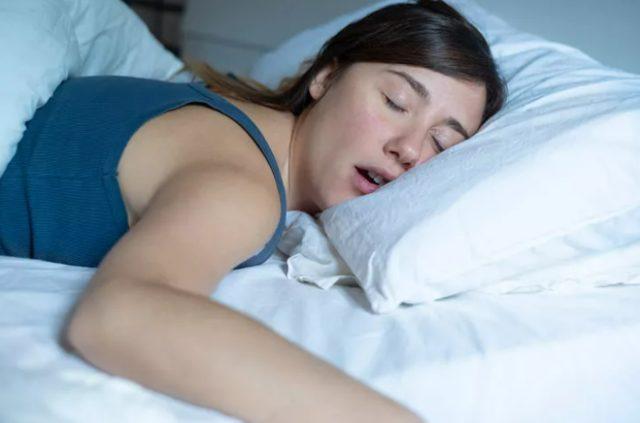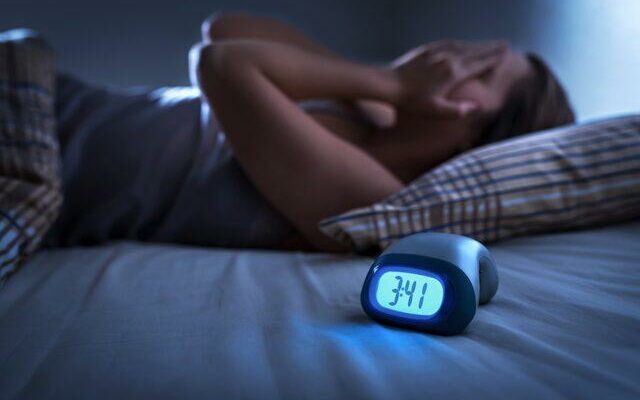Earthquakes and natural disasters deeply affect both health and psychology. Many people have sleep problems due to earthquakes that can cause long-term trauma. Neurology Specialist Assoc. Dr. Belma Doğan Güngen, “Natural disasters such as earthquakes create a common fear in the society. Serious psychological disorders and sleep disorders may occur in cases of anxiety caused by the earthquake. The dimensions of stressful events can affect not only the individual or their immediate environment, but also sometimes their distant environment. In this case, The incidence of social psychological problems and sleep disorders may increase.
1 IN 10 PEOPLE EXPERIENCES SLEEPlessness
Defining insomnia, Assoc. Dr. Güngen said, “Although there are many types of insomnia, insomnia can be broadly classified as acute and chronic. Acute insomnia is mostly triggered by stress, often disappearing with the source of stress. Acute insomnia has been observed in nearly half of the population. Being a woman, advanced age, history of psychiatric illness, history of chronic illness, and poor coping strategies increase the risk of acute insomnia. Chronic insomnia, which lasts 3-6 months, is associated with long-term health problems and affects approximately 5-10 percent of the population. In general, 1 out of 10 people suffer from insomnia.
LONG-TERM SLEEPING CAN CAUSE SERIOUS DISEASES

Talking about the effects of sleep disorders on the individual and the problems caused by insomnia, Assoc. Dr. Güngen said, “While short-term insomnia causes fatigue, depression, stress, and headaches; Long-term insomnia can cause many chronic diseases such as cardiovascular diseases, dementia, obesity, digestive system disorders, anxiety disorder and diabetes. Sleep health is very important to prevent cancer.
THE RATE OF PSYCHOLOGICAL PROBLEMS AFTER EARTHQUAKE MAY INCREASED
Noting that sleep disorders can be seen in individuals after earthquakes and natural disasters, Assoc. Dr. Güngen said, “Natural disasters such as earthquakes create a common fear in society. In cases of anxiety caused by the earthquake, serious psychological disorders and sleep disorders occur. The dimensions of stressful events can affect not only the individual or his immediate environment, but also his immediate and distant environment and even all support systems. In this case, the incidence of social psychological problems and sleep disorders may increase.
HACKS FOR SLEEPlessness

Assoc. Dr. Belma Doğan Güngen listed the suggestions that will be good for insomnia as follows:
- “Minimize light and noise.
- Remove electronic devices from the bedroom.
- Ventilate the room.
- Avoid overeating before going to bed.
- Limit time spent in bed.
- Only go to bed when you feel sleepy.
- Wake up at a regular fixed time.
- Get relaxation therapies.
- Avoid foods such as coffee, tea and chocolate containing stimulants, especially after 17:00.
- Do not use alcohol or cigarettes before bed
- Avoid eating heavy meals
- Daytime naps should be avoided.
- Get regular light to moderate exercise. Avoid intense exercise.
- Practice meditation techniques.
- Use the bed only for sleep. Never do activities other than sleep, such as watching TV and spending time on the computer, in bed.”
A HEALTHY YOUNG CAN SLEEP IN 20 MINUTES

Mentioning how much sleep should be for different ages, Assoc. Dr. Güngen said, “A healthy young adult can fall asleep in 20 minutes when the lights are turned off. The ideal sleep for humans is between 7 and 9 hours. This period is significantly reduced in the elderly, chronic diseases and some genetic sleep problems. Newborn babies can sleep up to 14-16 hours a day. While adults need an average of 7-9 hours of sleep a day, sleep time decreases to 6 hours in advanced ages. Quality sleep is just as important as insomnia. For the ideal sleep time, which is 7-9 hours, it is important to sleep between 23.00-03.00. Sleeping more than 9 hours a day is as dangerous for health as insomnia.
IF YOU CAN’T SLEEP IN THE DARK, FOLLOW THESE SUGGESTIONS
Stating that it is possible to get rid of the fear of not being able to sleep in the dark, Assoc. Dr. Güngen said, “Behind the fear of the dark is the idea of danger. Although it is more common in children, it also occurs in adults.
Assoc. Dr. Güngen listed his suggestions as follows to overcome the fear of not being able to sleep in the dark:
- “Give yourself enough time to rest before you go to bed. You feel safe. You can read relaxing music or a book.
- Meditation and calming breathing exercises can be done.
- It is important not to watch and read especially negative, violent news on television and newspapers.
- The lights should be dimmed gradually, making you feel safe, without turning them off at once.
- Make small decorations in your room so that you feel more secure and peaceful.”
(DHA)
